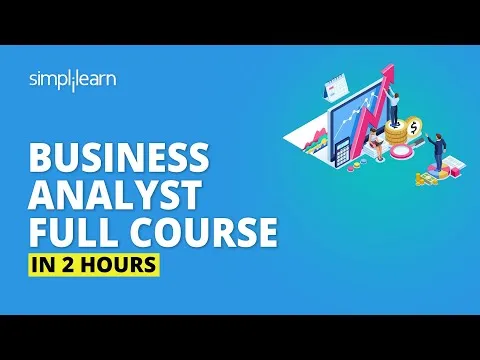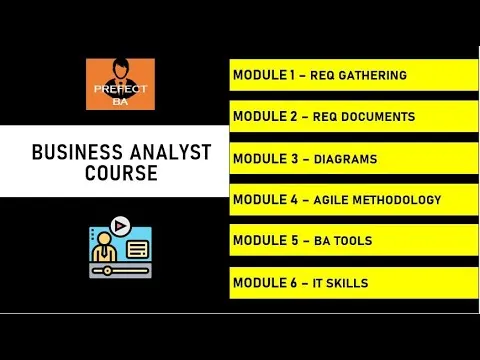
Demand and Supply Analytics 
This course provides an introduction to the fundamentals of demand and supply analytics. It covers topics such as finding, assessing, and capitalising on business analytic possibilities that provide value to the company, creating models that aid and support managerial and corporate choices, and examining case studies of businesses that have effectively implemented analytical techniques. Students will learn analytical procedures and their applications at a basic level, and gain an understanding of how to use analytics to make informed decisions. The course will also provide an overview of the current trends in demand and supply analytics. ▼
ADVERTISEMENT
Course Feature
![]() Cost:
Cost:
Free
![]() Provider:
Provider:
Edx
![]() Certificate:
Certificate:
No Information
![]() Language:
Language:
English
![]() Start Date:
Start Date:
Self Paced
Course Overview
❗The content presented here is sourced directly from Edx platform. For comprehensive course details, including enrollment information, simply click on the 'Go to class' link on our website.
Updated in [May 17th, 2023]
This course, Demand and Supply Analytics, provides students with the opportunity to explore the possibilities of business analytics and how they can be used to create value for a company. Students will learn how to create models that can be used to support managerial and corporate decisions, as well as gain an understanding of the analytical procedures and their applications at a basic level. Through the course, students will also be exposed to case studies of businesses that have successfully implemented analytical techniques.
[Applications]
The application of this course can be seen in many areas of business. It can be used to identify and assess potential opportunities, create models to support managerial and corporate decisions, and analyse case studies of businesses that have successfully implemented analytical techniques. Additionally, the course can be used to develop strategies for pricing, forecasting, and inventory management. Furthermore, the course can be used to gain insights into customer behaviour and preferences, as well as to identify and analyse trends in the market. Finally, the course can be used to develop strategies for marketing and advertising campaigns.
[Career Paths]
1. Business Analyst: Business Analysts are responsible for gathering and analyzing data to identify trends and opportunities for improvement. They use their findings to develop strategies and solutions that help organizations reach their goals. Business Analysts must have strong analytical and problem-solving skills, as well as the ability to communicate effectively with stakeholders. The demand for Business Analysts is expected to grow as organizations continue to rely on data-driven decision-making.
2. Data Scientist: Data Scientists are responsible for collecting, analyzing, and interpreting large amounts of data. They use their findings to develop predictive models and algorithms that help organizations make better decisions. Data Scientists must have strong technical skills, as well as the ability to communicate effectively with stakeholders. The demand for Data Scientists is expected to grow as organizations continue to rely on data-driven decision-making.
3. Supply Chain Analyst: Supply Chain Analysts are responsible for analyzing and optimizing the supply chain of an organization. They use their findings to develop strategies and solutions that help organizations reduce costs and improve efficiency. Supply Chain Analysts must have strong analytical and problem-solving skills, as well as the ability to communicate effectively with stakeholders. The demand for Supply Chain Analysts is expected to grow as organizations continue to focus on improving their supply chain operations.
4. Business Intelligence Analyst: Business Intelligence Analysts are responsible for gathering and analyzing data to identify trends and opportunities for improvement. They use their findings to develop strategies and solutions that help organizations reach their goals. Business Intelligence Analysts must have strong analytical and problem-solving skills, as well as the ability to communicate effectively with stakeholders. The demand for Business Intelligence Analysts is expected to grow as organizations continue to rely on data-driven decision-making.
[Education Paths]
1. Bachelor of Science in Business Analytics: This degree program provides students with the skills and knowledge to analyze data and develop strategies to improve business operations. Students learn to use data-driven decision-making to identify trends, develop predictive models, and optimize processes. This degree is becoming increasingly popular as businesses become more data-driven and competitive.
2. Master of Science in Supply Chain Management: This degree program focuses on the management of the supply chain, from procurement to delivery. Students learn to analyze data to identify areas of improvement, develop strategies to optimize the supply chain, and create models to forecast demand. This degree is becoming increasingly important as businesses strive to become more efficient and cost-effective.
3. Master of Science in Business Analytics and Decision Science: This degree program focuses on the use of data and analytics to make decisions. Students learn to use data to identify trends, develop predictive models, and optimize processes. This degree is becoming increasingly popular as businesses strive to become more data-driven and competitive.
4. Doctor of Philosophy in Business Analytics: This degree program focuses on the use of data and analytics to make decisions. Students learn to use data to identify trends, develop predictive models, and optimize processes. This degree is becoming increasingly popular as businesses strive to become more data-driven and competitive.
Course Provider

Provider Edx's Stats at AZClass
Discussion and Reviews
0.0 (Based on 0 reviews)
Explore Similar Online Courses

College Algebra

Firebase Analytics: Android

Python for Informatics: Exploring Information

Social Network Analysis

Introduction to Systematic Review and Meta-Analysis

The Analytics Edge

DCO042 - Python For Informatics

Causal Diagrams: Draw Your Assumptions Before Your Conclusions

Whole genome sequencing of bacterial genomes - tools and applications

Business Analyst Full Course In 2 Hours Business Analyst Training For Beginners Simplilearn

Business Analyst Training for Beginners Business Analysis Tutorial Invensis Learning


Start your review of Demand and Supply Analytics